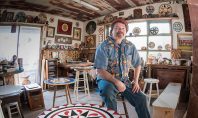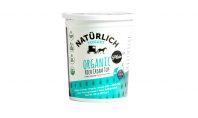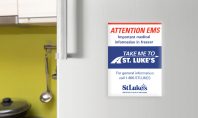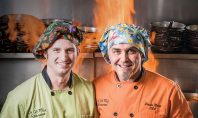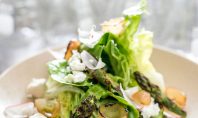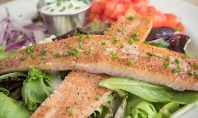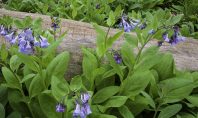The Rise of Whiskey
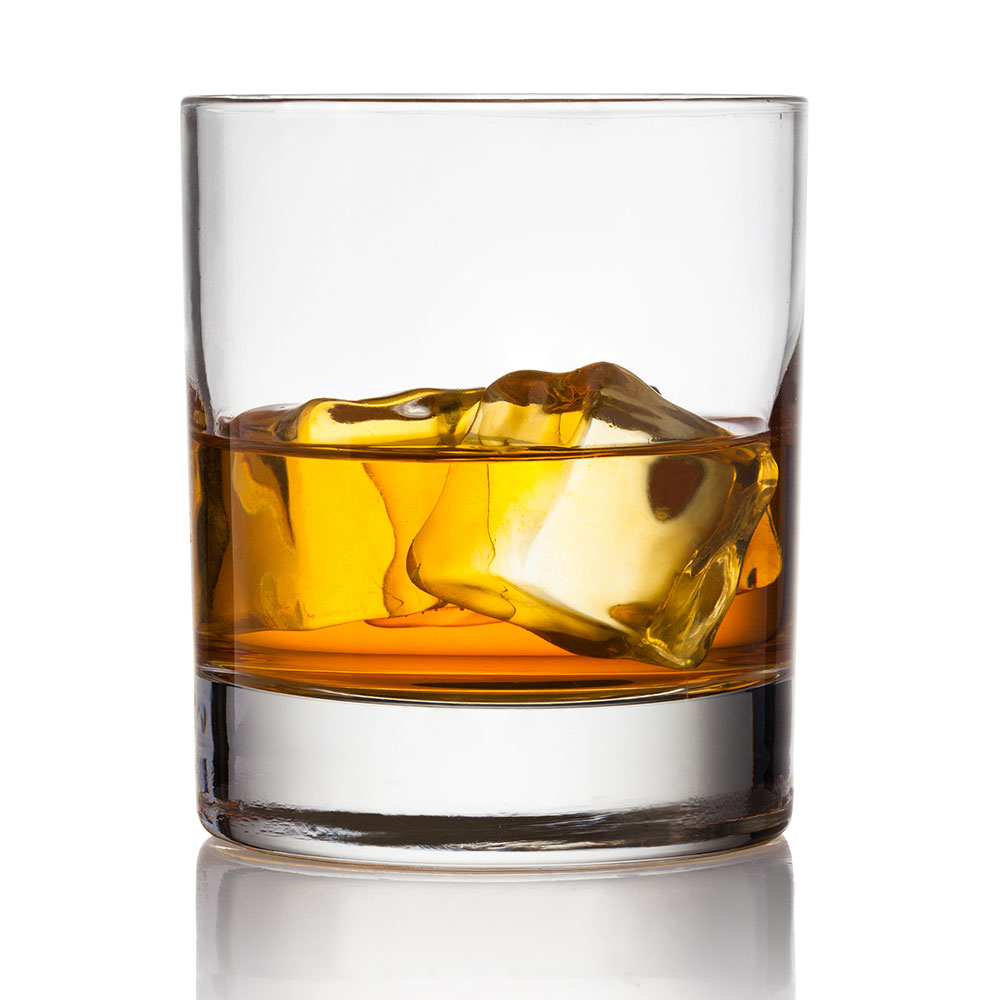
For years, vodka has reigned as America’s #1 distilled spirit. Its success has been due, in large part, to the fact that it has nothing going for it.
“Nothing” as in no color, no aroma, no flavor.
“Vodka is basically a good spirit to put into a mix when you don’t want the taste of the liquor to affect the other flavors,” says Chad Butters, co-owner of Eight Oaks Craft Distillers in New Tripoli. That’s what makes it so versatile.
But tastes are changing, and whiskeys are increasing their share of the market. Kelley McDonough, Director of Public Relations NY for the Distilled Spirits Council in Washington, D. C., told me that while vodkas account for 32 percent of the market by volume, the whiskey category is growing steadily, and is now only four percentage points
behind vodka.
What’s driving the change? Many things.
John Chaya, co-owner of Jack Callaghan’s Ale House in Allentown, says he’s noticed that his patrons are drinking more for taste than for volume these days, and whiskeys certainly bring a lot to the flavor table.
Kristofer Kwantt, managing partner at Triple Sun Spirits in Emmaus, credits throwback shows like Mad Men. “It brought sexiness back to cocktail culture,” he says. “It connected a certain machismo and mystique to scotch and other whiskeys.”
And Adam Flatt, co-owner of Social Still in Bethlehem, says that just as fans of craft beer are willing to try something new and different, many people are approaching craft whiskeys with the same attitude.
The chemical process for making all whiskeys is basically the same, and Chad provides a simplified explanation: Milled grains are cooked with water for several hours; added enzymes then convert the starches to sugars. After the addition of yeast, the mix ferments for about a week, as the sugars turn into alcohol. The resulting “beer mash” is distilled at least twice, in order to maximize the alcohol content.
But there are plenty of differences within that process. Each grain brings its own “personality” to the party, so distillers’ recipes for the same spirit can vary widely. For example, bourbon mash must contain at least 51% corn—but it can have more. Its other grains can include wheat, barley, or rye, in any proportion that the distiller chooses.
Whiskey types are pretty rigidly defined as well. By law, bourbon must be made in the U.S. from a mash that’s at least 51% corn, distilled to no higher than 160 proof, and barreled at no higher than 124 proof, in brand-new, charred, American white oak barrels.
Or else. “If I deviate from a single rule—storing it in a previously used barrel, for example—I may not call the finished product bourbon,” Adam says.
Likewise, an American distiller could duplicate the precise recipe and process of making Scotch whiskey, but if it’s not made and aged in Scotland, well, it ain’t Scotch.
And while the really big guys—Jim Beam and Jack Daniels—dominate the market, craft distillers are carving their own niches, and we have several of them right here in the Valley. Let’s take a look.
We’ve already mentioned Eight Oaks Craft Distillers. It’s a family-owned business that uses locally grown grains and fruit, and distills them into a variety of potent potables. Eight Oaks’ signature product is America’s oldest spirit, applejack. In addition to bourbon and rye whiskeys, the distillery produces its own vodka, gin, and rum. Co-owners Chad Butters and Jesse Tyahla also enhance small quantities of bourbon and rye by “double casking” them, or aging the liquors further in used wine barrels (pinot noir for bourbon, port for rye) to introduce even more subtle flavor notes.
Triple Sun Spirits produces premium corn whiskeys, three types of rum, as well as apple brandy and gin. Its 100-proof “stouted” corn whiskey is double-casked in barrels that once held Weyerbacher’s Sunday Morning Stout, which contributes chocolate, coffee, and vanilla notes. Triple Sun’s first batch of bourbon is scheduled to debut in September.
Social Still’s lineup of spirits includes The Vault bourbon, rye, vodka, gin, rum, and barrel gin (aged in old rye whiskey barrels). Want something a little different? How about a bourbon infused with vanilla beans and real maple syrup? Or one that’s enhanced with Nicaraguan and Ethiopian coffee beans?
Other local distillers include County Seat Spirits in Allentown (“Hidden Copper” bourbon, as well as vodka, gin, and rum) and Kilimanjaro Distillery, Hanover Township (vodka, gin, moonshine, and “Dutch Apple Pie” liqueur).
Finally, here’s the answer to a tough question about these luscious brown spirits: Which is correct: “whisky” or “whiskey?” According to culinary writer Nora Maynard, both are correct. It mainly depends on where it’s produced. Her simple rule of thumb: Countries that have Es in their names (UnitEd StatEs, IrEland) tend to spell it whiskey, while countries without Es spell it whisky
(plural whiskies).
________________________________
Why is whiskey so closely tied to St. Patrick’s Day? Because of demons,
of course!
An ancient Irish legend tells of good St. Padraig (if you please) visiting a public house for a tot of whiskey, where he found the barman pouring “light,” while demanding full payment for the drinks.
St. Padraig decided to teach the innkeeper a lesson. He told him that a monstrous devil lived in the pub’s basement, where it grew ever fatter on the barman’s stinginess. Padraig warned him that the devil would always grow stronger as long as the owner condoned the cheating.
Padraig later returned to the inn—and discovered that every glass and mug was filled to the brim, and beyond. He and the innkeeper went again to the cellar, where the old demon was now weak and starving. St. Padraig banished the demon to hell, and then declared that everyone should partake of a stiff dram of “the water of life” to mark the occasion of his feast day.
The practice is now called Pota Phadraig, or “Patrick’s Pot”. According to custom, you must “drown a shamrock” by floating one on top of the whiskey before you drink it.
Truth? Blarney? No matter—Slainte!
Social Still
530 E Third St, Bethlehem
610.625.4585
socialstill.com
County Seat Spirits
905 Harrison St, Ste 128, Allentown
610.628.9502
countyseatspirits.com
Eight Oaks Craft Distiller
7189 Rte 309, New Tripoli
484.387.5287
eightoaksdistillers.com
Triple Sun Spirits
518 Bank St, Emmaus
610.904.8082
triplesunspirits.com
Kilimanjaro Distillery
995 Postal Rd, Hanover Township
484.661.2488
xplorerspirits.com

